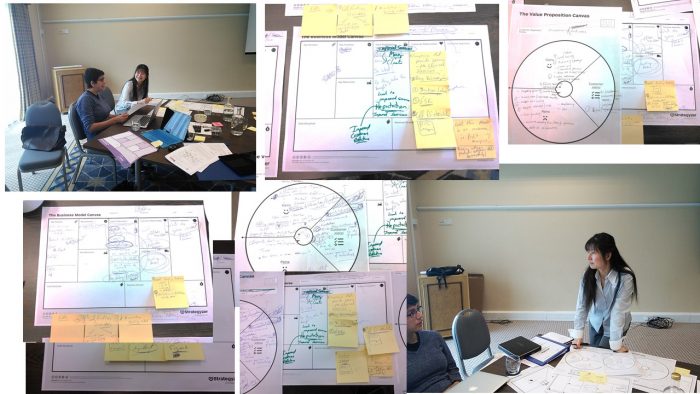SEARCH
Enter your search term below:
Close
Enter your search term below:

WORLD LEADING BUSINESS SUPPORT

The latest cohort of early-career researchers taking part in SETsquared’s ICURe innovation to commercialisation programme, came onboard in May.
The ICURe Innovation-to-Commercialisation programme, piloted by SETsquared and funded by HEFCE and Innovate UK, offers university researchers with commercially-promising ideas up to £50k to ‘get out of the lab’ and validate their ideas in the marketplace.
The scheme has recently been shortlisted for a Times Higher Education Leadership & Management Award in the Knowledge Exchange/Transfer Initiative.
Cohort six, which is made up of fifteen teams from across nine different universities, took part in the initial three-day residential training which aims to equip the team but especially the Early Career Reserchers with the skills needed to go out and market test their technologies with potential customers.
Projects included a targeted advertising ecosystem for the TV industry, harnessing stem cells for bone regeneration and a novel energy management software.
At the end of the three-day residential, the teams must present an action plan and budget, which outlines how and when they intend to meet key industry leaders and once agreed have 10-weeks to deliver on this plan.
Alan Scrase, ICURe programme leader said: “In total, 78 teams have taken part in ICURe so far, which have gone on to form 27 companies. The programme is completely changing researchers perception of risk and how they build a network of contacts. Success from the programme can take many forms and isn’t always company formation. In some cases researchers have found that the science is too early for market but have had aspects of their research sponsored by the key contacts they’ve made and since only 3% of researchers remain in academia for their career it also equips them with the skills they may need in industry.”
Following the 10-week customer validation phase, the researchers must come back and present to a panel, called the ‘Options Roundabout’. Based on their findings this panel then advise the researcher on the best way to take their project forward.
Previous participant Maomao Zhang from the Engineering Tomography Laboratory, said: “Before the ICURe programme, I thought a lot about my research but now I have a better understanding of the industry and as a result I’ve developed my research to fulfil the needs of the customer as opposed to just improving my technology for my own research interest.”
“The most important part of the ICURe programme for me was the market research. I talked to so many people from the industry who were experiencing real problems and we shared a passion for searching for solutions. The feedback enabled me to realise the importance of the technology that I’m developing. The ICURe programme also taught me that developing solutions to theoretical problems is just the very beginning; intellectual property, financing, accounting, marketing, and employing a team are all important and need attention in order to set up a real business.”

Get all the fresh insights first! Stay up-to-date with all the
latest investment news, blogs and all things SETsquared.
Close
Close